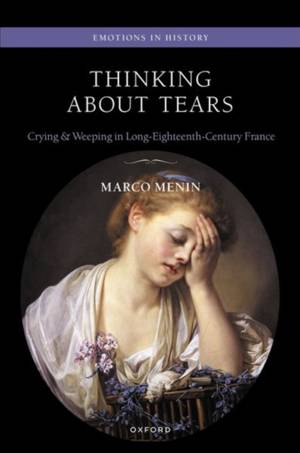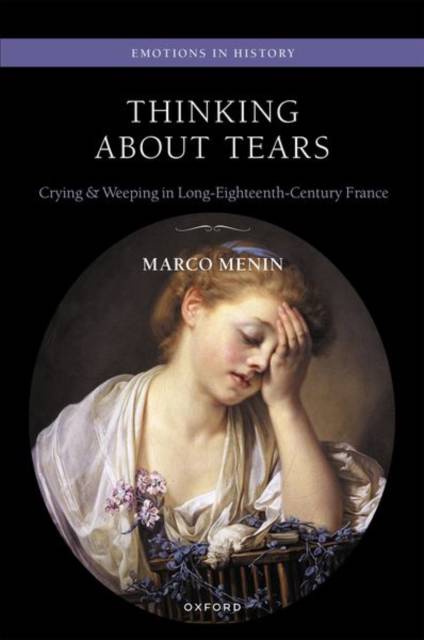
En raison d'une grêve chez bpost, votre commande pourrait être retardée. Vous avez besoin d’un livre rapidement ? Nos magasins vous accueillent à bras ouverts !
- Retrait gratuit dans votre magasin Club
- 7.000.000 titres dans notre catalogue
- Payer en toute sécurité
- Toujours un magasin près de chez vous
En raison de la grêve chez bpost, votre commande pourrait être retardée. Vous avez besoin d’un livre rapidement ? Nos magasins vous accueillent à bras ouverts !
- Retrait gratuit dans votre magasin Club
- 7.000.0000 titres dans notre catalogue
- Payer en toute sécurité
- Toujours un magasin près de chez vous
177,45 €
+ 354 points
Description
A crucial period for the birth of the modern subject, France's 'long eighteenth century' (approximately 1650-1820) was an era marked by the formulation of a new aesthetic and ethical code revolving around the intensification of emotions and the hyperbolic use of weeping. Precisely because tears are not a simple biological fact but rather hang suspended between natural immediacy, on one side, and cultural artifice, on the other, the analysis of crying came to represent an exemplary testing ground for investigations into the enigmatic relations binding the realm of physiology to that of psychology. Thinking About Tears explores how the link between tears and sensibility in France's long eighteenth century helps shed light on the process through which the European emotional lexicon has been built: from viewing tears as governed by the sphere of 'passions' and 'feelings', thinkers began to view crying as first a matter of sensibility and then of sensiblerie (a pathological excess of sensibility), thereby presupposing an intimate connection with the category of 'sentiments'. For this reason, this volume examines not only or even primarily the actual emotion of crying, but also the attempt to think about and explain this feeling. Drawing on a wide range of early modern philosophical, medical, religious, and literary texts-including moral treatises on the passions, medical textbooks, letters, life-writings, novels, and stage-plays-Thinking About Tears reveals another side to a period that has too often been saddled with the cursory label of 'the age of reason'.
Spécifications
Parties prenantes
- Auteur(s) :
- Editeur:
Contenu
- Nombre de pages :
- 336
- Langue:
- Anglais
- Collection :
Caractéristiques
- EAN:
- 9780192864277
- Date de parution :
- 25-11-22
- Format:
- Livre relié
- Format numérique:
- Genaaid
- Dimensions :
- 164 mm x 237 mm
- Poids :
- 680 g

Les avis
Nous publions uniquement les avis qui respectent les conditions requises. Consultez nos conditions pour les avis.






